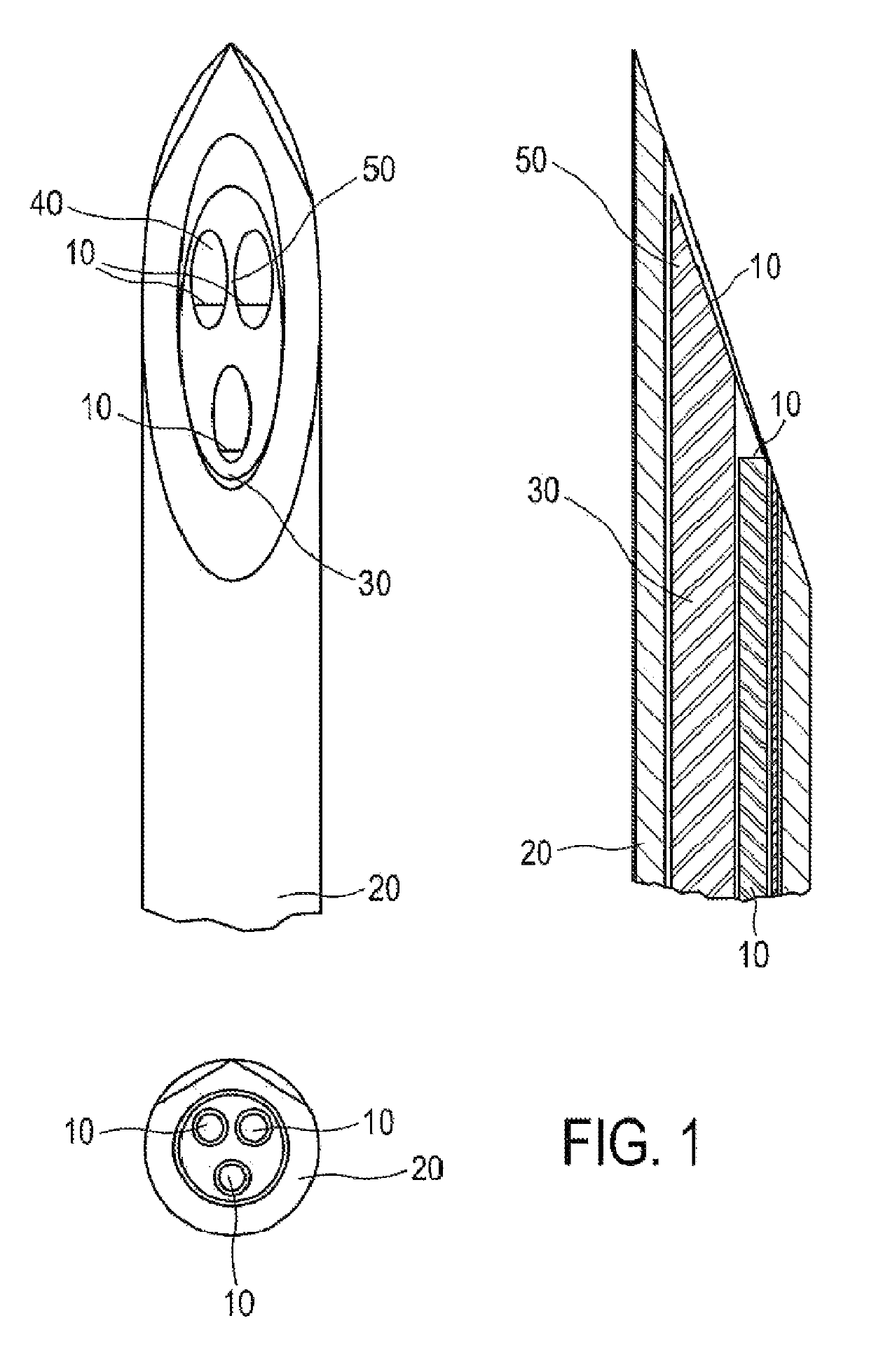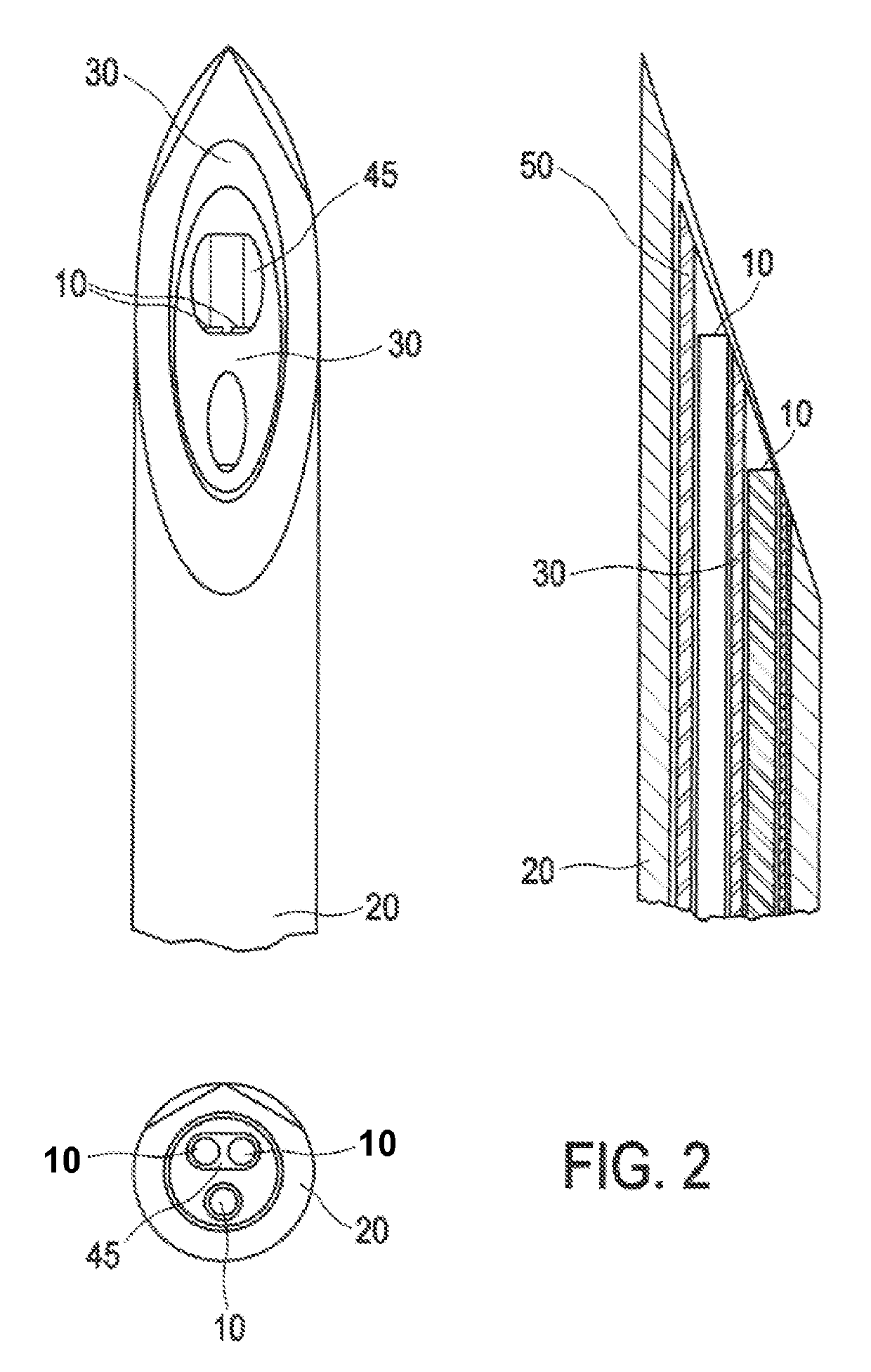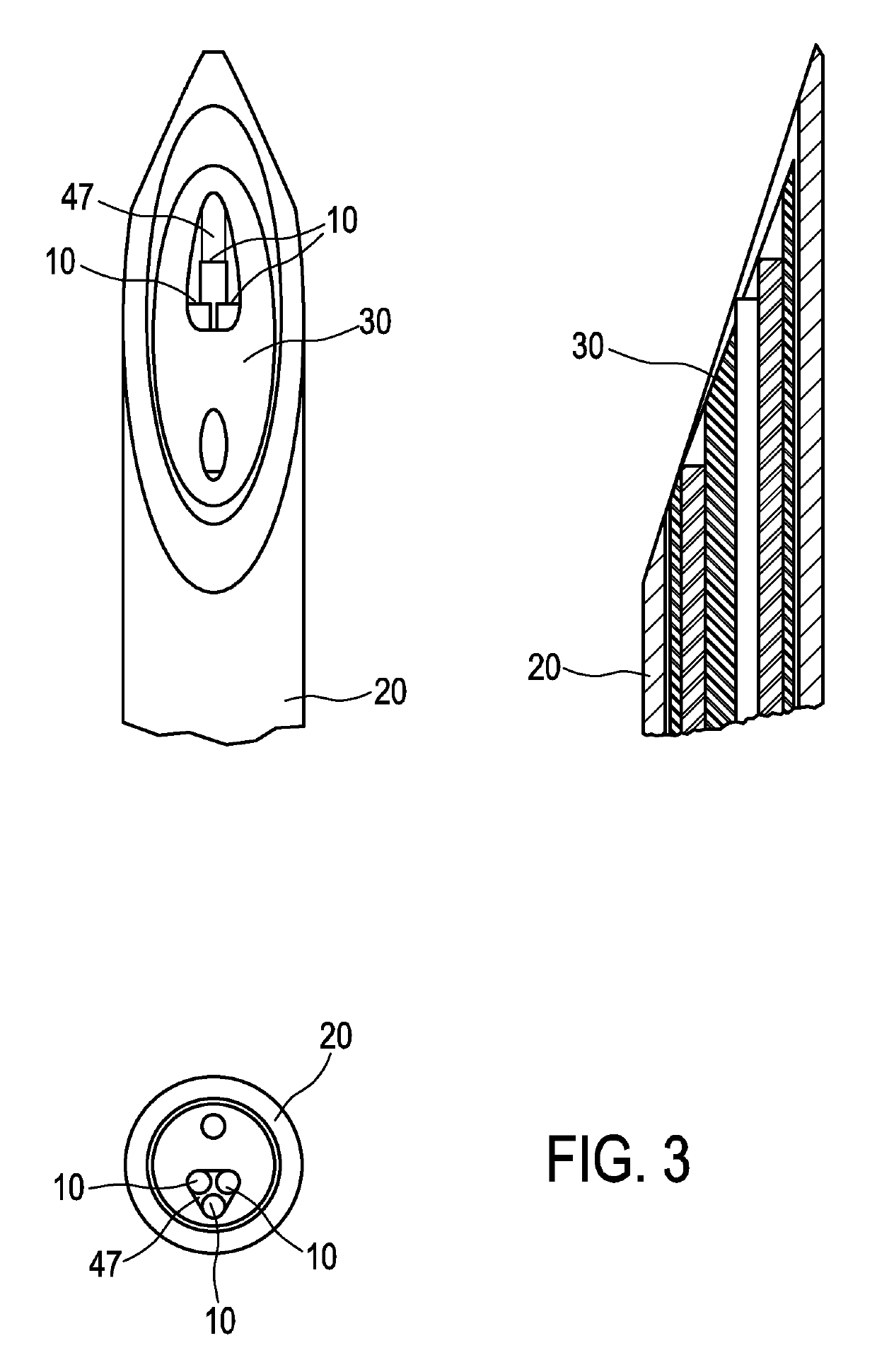Medical probe with multi-fiber lumen
a multi-fiber, medical probe technology, applied in the field of medical probes, can solve the problems of missing real-time feedback during the procedure of taking a biopsy or performing surgical resection, and it is difficult to combine as a direct integral part of a single medical probe, and achieve the effect of increasing optical detection efficiency
- Summary
- Abstract
- Description
- Claims
- Application Information
AI Technical Summary
Benefits of technology
Problems solved by technology
Method used
Image
Examples
second embodiment
[0042]In the second embodiment shown in FIG. 3, a multi-fiber lumen 47 which contains three optical fibers 10 is provided. Thereby, a further optical fiber is available for improving the detection efficiency.
[0043]Thus, as can be gathered from FIGS. 2 and 3, the multilumen insert 30 is formed in a manner to provide a fixed distance and orientation of the contained optical fibers 10. The shape of the multi-fiber lumen 45, 47 is adapted to the number of optical fibers 10 contained therein, so that the location and orientation of the optical fibers 10 are fixed with regard to the multilumen insert 30 and thus also to any other optical fiber 10 in the multilumen insert 30.
[0044]In a third embodiment (not shown), the multi-fiber lumen 45 or 47 of the first or second embodiment may be partly or completely coated with a metal coating or a coating having low autofluorescence such that unwanted autofluorescence from needle parts (such as the multilumen tube 30) are as low as possible.
third embodiment
[0045]To manufacture the biopsy needle, the multilumen tube 30 may be made of plastic material with well defined lumen at positions that define the distance between the optical fibers 10 that can be inserted in these lumen. In the first to third embodiment, the multilumen tube 30 has at least one multi-fiber lumen 45, 47 that can contain more than one optical fiber 10. Hence there is no side wall between these two or three optical fibers 10 and no shadowing effect can occur. These two or three optical fibers 10 in the multi-fiber lumen 45, 47 are therefore well suited for fluorescence detection.
[0046]The optical fibers 10 used in the multi-fiber lumen 45, 47 are typically straight cut or only a moderate angle in such a way that (partly) total internal reflection at the fiber end is prevented. When total internal reflection occurs light reflected at the fiber end will end up in the cladding of the optical fiber 10. Depending on what material surrounds the optical fiber 10, part of th...
PUM
 Login to View More
Login to View More Abstract
Description
Claims
Application Information
 Login to View More
Login to View More - R&D
- Intellectual Property
- Life Sciences
- Materials
- Tech Scout
- Unparalleled Data Quality
- Higher Quality Content
- 60% Fewer Hallucinations
Browse by: Latest US Patents, China's latest patents, Technical Efficacy Thesaurus, Application Domain, Technology Topic, Popular Technical Reports.
© 2025 PatSnap. All rights reserved.Legal|Privacy policy|Modern Slavery Act Transparency Statement|Sitemap|About US| Contact US: help@patsnap.com



